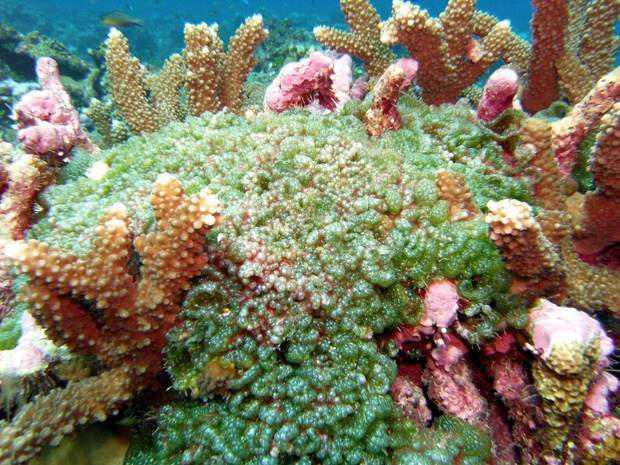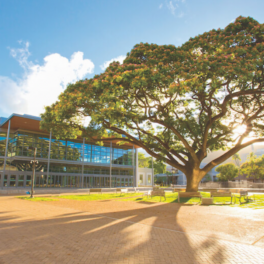Microbial takeover on coral reefs?
 Coral being overgrown by fleshy algae. Image courtesy of Jennifer Smith, Scripps Institution of Oceanography.
Coral being overgrown by fleshy algae. Image courtesy of Jennifer Smith, Scripps Institution of Oceanography.Coral reefs—the world’s most productive and diverse marine ecosystems—rely on a masterful recycling program to stay healthy. The corals and algae that form the base of the reef’s food web release a variety of nutrients that support a complex and efficient food chain. But when this system gets out of whack, the cycle breaks down and endangers the coral reef’s health. A new study led by researchers at San Diego State University (SDSU) and co-authored by assistant professor Craig Nelson at the Center for Microbial Oceanography: Research and Education (C-MORE) explores how a process called microbialization destroys links in this delicate food chain.
Millions of people around the world depend on coral reefs to provide productive fisheries and they play an important role in global environmental health. Overfishing the waters near reefs, however, removes the primary consumers of algae, allowing fleshy algae to spread unchecked. In areas with large human populations, pollution often exacerbates the problem by stimulating the algae.
Fleshy algae on reefs exude copious amounts of nutrients known as dissolved organic carbon (DOC), which microbes eat. Researchers theorized that when reef ecosystems have elevated levels of algae producing meals for microbes, higher levels of potentially harmful microbes can occur throughout the reef ecosystem. In this newly abundant population of microbes, evolutionary selection pressures favor microbes that endanger corals, either by depleting oxygen from the environment or through disease.
Read more about it in the UH System News.



